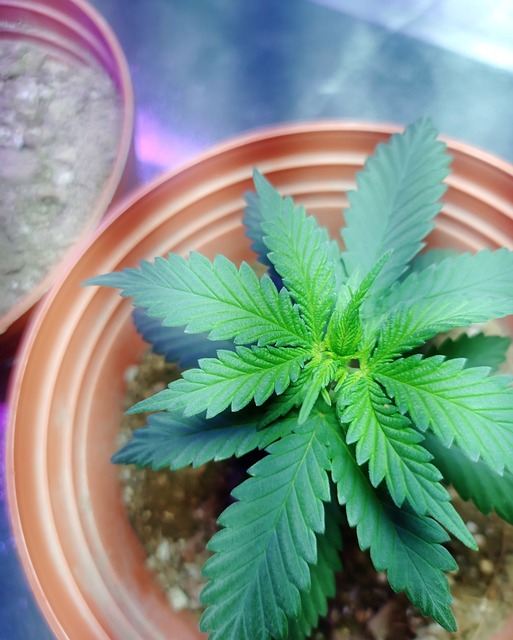
The evolving legal status of THCA (Tetrahydrocannabinolic Acid) within the European Union is becoming increasingly favorable, with many EU countries permitting its use for both medical and recreational purposes under strict regulatory guidelines. THCA, a non-psychoactive cannabinoid found in hemp and cannabis, offers potential health benefits such as pain relief, anti-inflammatory properties, and support for neuroprotection and gastrointestinal health without the intoxicating effects of its psychoactive counterpart THC. The EU's regulatory framework ensures consumer safety and product efficacy through practices like Good Agricultural Collection Practice (GACP), stringent testing for purity and efficacy, and adherence to quality standards such as ISO certifications and organic seals. As the market for natural wellness solutions expands, THCA flower is becoming an integral part of a holistic approach to health and wellness in Europe. It's important for consumers to verify the legality of THCA flowers within their respective EU country, start with low doses, and purchase from reputable sources to ensure a safe and beneficial experience. Always consult healthcare professionals before incorporating THCA into your wellness routine.
Explore the emerging landscape of THCA flower, a non-psychoactive cannabinoid gaining attention across Europe for its potential wellness benefits. Delving into its therapeutic properties and legal status within EU countries, this article sheds light on the regulatory framework surrounding THCA. Understand how this natural compound interacts with the body’s endocannabinoid system and complements other cannabinoids and terpenes to enhance the entourage effect. Additionally, gain insights into safe cultivation practices and quality control measures that ensure a high-grade product for consumers seeking the benefits of THCA flower.
- Unveiling THCA Flower: The Natural Cannabinoid Gaining Momentum in EU Health and Wellness
- THCA Legal Status in EU Countries: Navigating the Regulatory Landscape
- Potential Therapeutic Benefits of THCA Flower: Beyond the Psychoactive Effects of THC
- The Entourage Effect: How THCA Flower Complements Other Cannabinoids and Terpenes
- Cultivation and Quality Control: Ensuring Safe and Efficacious THCA Flower in the EU Market
- Consumer's Guide to THCA Flower: Usage, Dosage, and Effects for Optimal Well-being
Unveiling THCA Flower: The Natural Cannabinoid Gaining Momentum in EU Health and Wellness
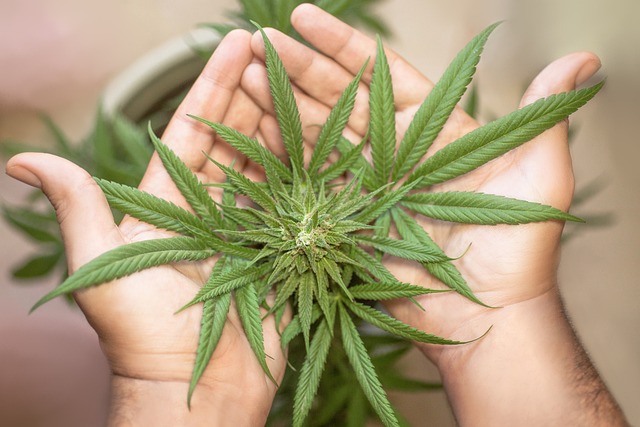
2023 has seen a surge in interest surrounding THCA, or tetrahydrocannabinolic acid, a naturally occurring cannabinoid found in hemp and cannabis plants. As regulations evolve, THCA-rich flowers are gaining traction within the EU health and wellness sector. Unlike its psychoactive counterpart, THC, THCA is non-psychoactive, making it an appealing option for individuals seeking the potential therapeutic benefits of cannabinoids without the ‘high’ associated with THC. The legality of THCA flowers varies across EU countries, with many nations permitting the cultivation and sale of hemp products containing less than 0.2% THC. This legal threshold has paved the way for the emergence of THCA as a key player in wellness routines, with its potential anti-inflammatory, analgesic, and neuroprotective properties being increasingly recognized by consumers and healthcare professionals alike. As research continues to unfold, anecdotal evidence suggests that THCA flowers may offer a myriad of health benefits, including stress and anxiety relief, support for immune function, and improvement in sleep quality. The growing body of scientific literature supports the notion that THCA could be a valuable addition to complementary and alternative medicine strategies within the EU, offering a natural alternative with a wide spectrum of potential wellness applications.
THCA Legal Status in EU Countries: Navigating the Regulatory Landscape
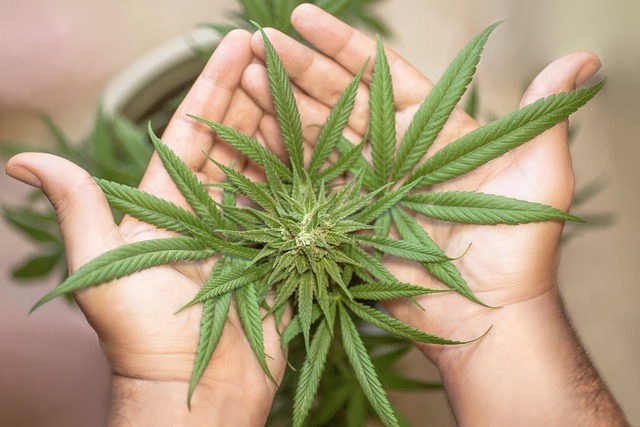
Across the European Union, the legal status of tetrahydrocannabinolic acid (THCA) varies, reflecting a complex regulatory landscape that each member state navigates with its own interpretations and implementations. THCA, which is the raw cannabinoid found in raw cannabis plants and precursor to the psychoactive THC when exposed to heat or light, has garnered attention for its potential therapeutic properties. In some EU countries, THCA-rich hemp products are legally available, often due to national legislation that differentiates between cannabinoids based on their ability to induce a high. For instance, Finland, Germany, and Italy have established frameworks allowing for the legal sale of THCA-infused products, provided they meet specific criteria such as THC content limitations. Conversely, in other EU countries, strict drug policies classify all cannabinoids, including THCA, under controlled substances legislation, thus limiting their availability to research settings or specialized medical programs. It’s crucial for consumers and businesses alike to stay informed about the evolving legal status of THCA within each EU country, as non-compliance can lead to legal repercussions. The regulatory environment is subject to change, influenced by both European Union guidelines and national policies, making it a dynamic area that requires ongoing attention.
Potential Therapeutic Benefits of THCA Flower: Beyond the Psychoactive Effects of THC
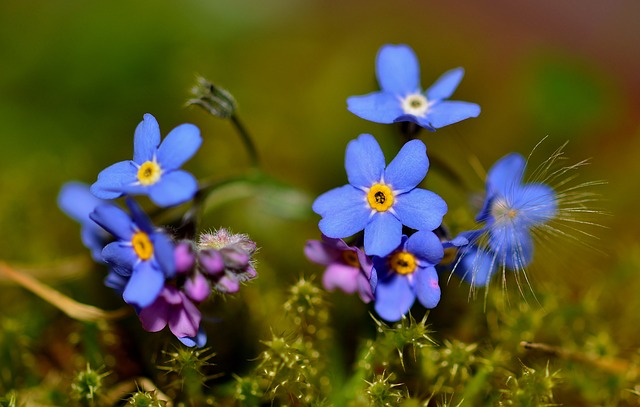
Cannabidiolic acid (THCA), the raw and natural precursor to delta-9-tetrahydrocannabinol (THC), has garnered attention for its potential therapeutic properties that extend beyond the psychoactive effects typically associated with THC. As an increasing number of EU countries legalize the cultivation, sale, and possession of cannabis flowers with low THC content, researchers are exploring the benefits of THCA-rich strains. THCA is non-psychoactive, meaning it does not induce the ‘high’ commonly linked to cannabis consumption. This characteristic allows for its use in a variety of therapeutic applications without the cognitive impairment that may come with THC.
Preliminary studies suggest that THCA may offer anti-inflammatory, neuroprotective, and analgesic effects. It is believed to interact with the body’s endocannabinoid system by binding to both CB1 and CB2 receptors, potentially influencing pain sensation and inflammation regulation. Moreover, THCA’s antiemetic properties are under investigation, as it may have a role in alleviating nausea and vomiting, particularly in patients undergoing chemotherapy. The legal landscape of THCA in the EU has been evolving, with some countries allowing its use for both medicinal and recreational purposes, provided it adheres to specific regulatory standards. As such, THCA flower is becoming an increasingly accessible option for those seeking the potential health benefits of cannabis without the mind-altering effects of its psychoactive counterpart, THC.
The Entourage Effect: How THCA Flower Complements Other Cannabinoids and Terpenes
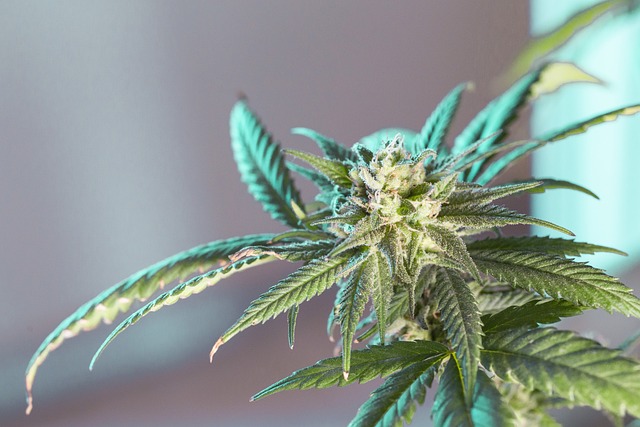
The exploration of cannabinoids and their individual effects on human health has been a subject of fascination for researchers and enthusiasts alike. Among the numerous cannabinoids found in the Cannabis sativa plant, Tetrahydrocannabinolic Acid (THCA) is gaining significant attention due to its potential therapeutic properties and legality across various EU countries. THCA, the precursor to the well-known psychoactive compound THC, has been observed to offer a range of benefits without the psychoactive effects, making it an attractive option for many users.
The Entourage Effect is a pivotal concept that underscores the enhanced effects resulting from the synergistic interaction between cannabinoids and terpenes in the cannabis plant. THCA flower, rich in this non-psychoactive cannabinoid, plays a crucial role within this symphony of compounds. When consumed as part of the whole plant, THCA complements other cannabinoids like CBD and CBN, as well as the diverse array of terpenes present. This synergistic interaction can amplify the benefits of each compound, potentially leading to a more potent and effective therapeutic experience than any single cannabinoid could provide alone. For instance, THCA is known for its anti-inflammatory and neuroprotective properties, which may be further enhanced by the presence of other cannabinoids and terpenes, creating a comprehensive effect that addresses various health conditions. As such, the inclusion of THCA flower in wellness regimens within the EU countries where it is legal, represents an innovative approach to harnessing the full potential of the plant’s medicinal properties.
Cultivation and Quality Control: Ensuring Safe and Efficacious THCA Flower in the EU Market
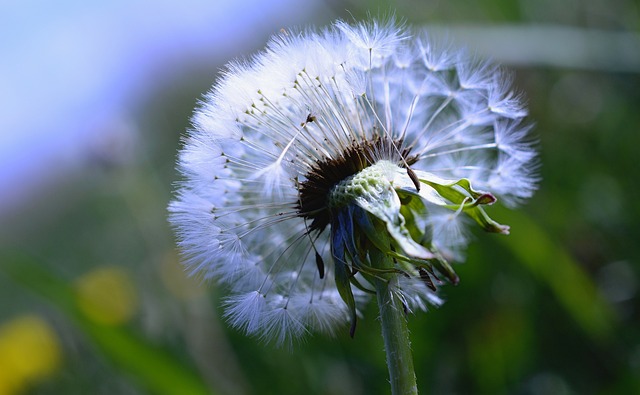
The cultivation and distribution of THCA (Tetrahydrocannabinolic Acid) flower in EU countries are governed by stringent regulations, reflecting the region’s commitment to maintaining high standards for consumer safety and product efficacy. Farmers and producers must comply with the European Union’s Good Agricultural Collection Practice (GACP) to ensure that THCA flowers are grown under controlled conditions, free from contaminants and with consistent potency levels. This adherence to GACP is crucial in creating a safe and efficacious product for the growing market of consumers seeking natural wellness solutions that THCA flower can provide.
Quality control measures are integral to the lifecycle of THCA flowers in the EU market, from cultivation to point of sale. Rigorous testing at various stages guarantees the integrity of the product. Certifications such as ISO and organic seals are becoming more commonplace, further assuring consumers that their health and well-being are prioritized. Advanced analytical techniques are employed to verify the THCA content, terpene profiles, and absence of harmful substances like heavy metals or pesticides. This commitment to quality control is a testament to the evolving legal landscape where THCA flower is recognized for its potential benefits within EU countries, ensuring that consumers have access to products that are both legally compliant and of the highest quality.
Consumer's Guide to THCA Flower: Usage, Dosage, and Effects for Optimal Well-being
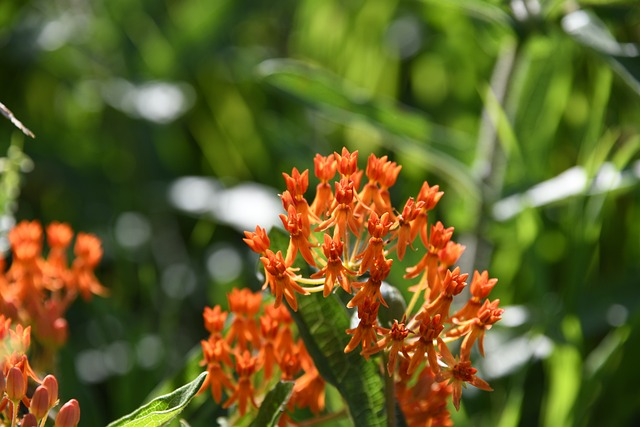
THCA, or Tetrahydrocannabinolic Acid, is a natural cannabinoid found in hemp and cannabis plants that has garnered attention for its potential wellness benefits. As consumers navigate the evolving landscape of cannabinoid products, understanding THCA and its legal status in EU countries is paramount. THCA is the precursor to THC (Tetrahydrocannabinol), the psychoactive compound commonly associated with cannabis use, but unlike THC, THCA is non-psychoactive, making it an appealing option for those seeking the potential health benefits without the ‘high’.
Before incorporating THCA flowers into your wellness routine, it’s crucial to verify their legal status in your specific EU country. As of the knowledge cutoff in 2023, many EU countries have legalized the production, sale, and possession of hemp-derived products containing THCA, provided they meet certain concentration thresholds. Always ensure compliance with local laws and regulations to avoid any legal complications.
When it comes to usage and dosage, individual experiences with THCA flowers can vary widely, and it’s important to start low and go slow. The optimal dosage for THCA flowers depends on various factors, including body chemistry, tolerance, and the specific effects you wish to experience. Typically, users may consume THCA flowers by smoking or vaporizing them. For those preferring non-inhaled methods, THCA can also be found in capsules, tinctures, or edibles. Effects may include pain relief, anti-inflammatory properties, and potential benefits for neuroprotection and gastrointestinal health.
To ensure a positive experience with THCA flowers, it’s recommended to source them from reputable suppliers who provide clear information on the cannabinoid content. Consistent quality and precise dosing can enhance the predictability of effects and contribute to your overall well-being. Always consult with a healthcare professional before introducing any new substance into your health regimen, especially if you have underlying health conditions or are taking other medications.
THCA flower has emerged as a noteworthy figure in the health and wellness sector within the European Union, offering potential therapeutic properties distinct from the psychoactive effects of its counterpart THC. As regulatory frameworks evolve across EU countries to accommodate this natural cannabinoid, consumers are increasingly exploring its benefits. The synergistic effect of THCA alongside other cannabinoids and terpenes in the cannabis plant underscores its growing significance. Ensuring quality control through proper cultivation practices is paramount for the efficacy and safety of THCA flower on the EU market. This article has shed light on the multifaceted aspects of THCA legal status, usage, and potential effects, empowering consumers to make informed decisions about incorporating THCA flower into their wellness routines. As the landscape of cannabinoid research continues to expand, so too will our understanding and utilization of this promising compound.






